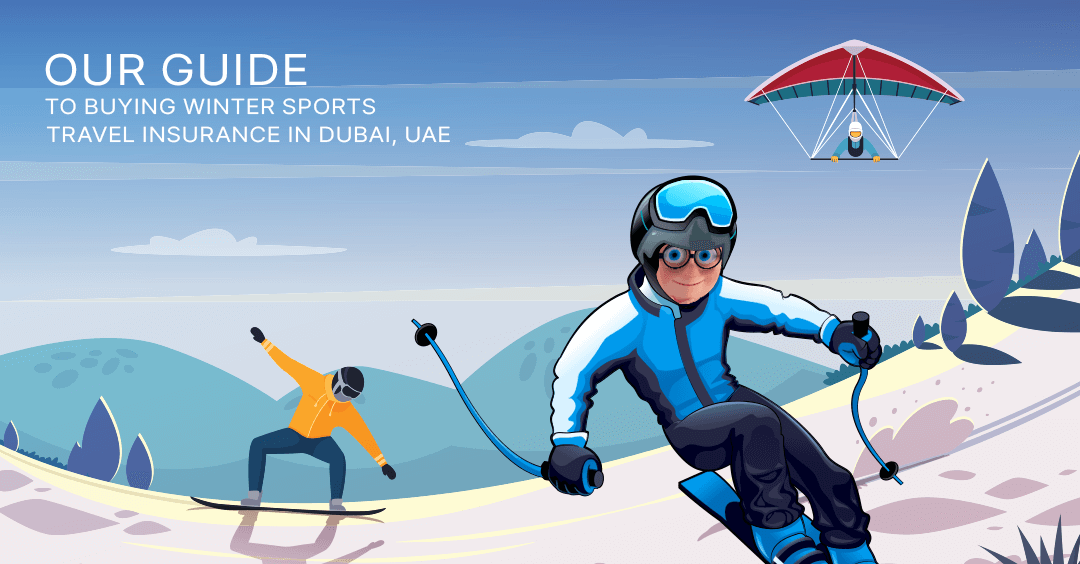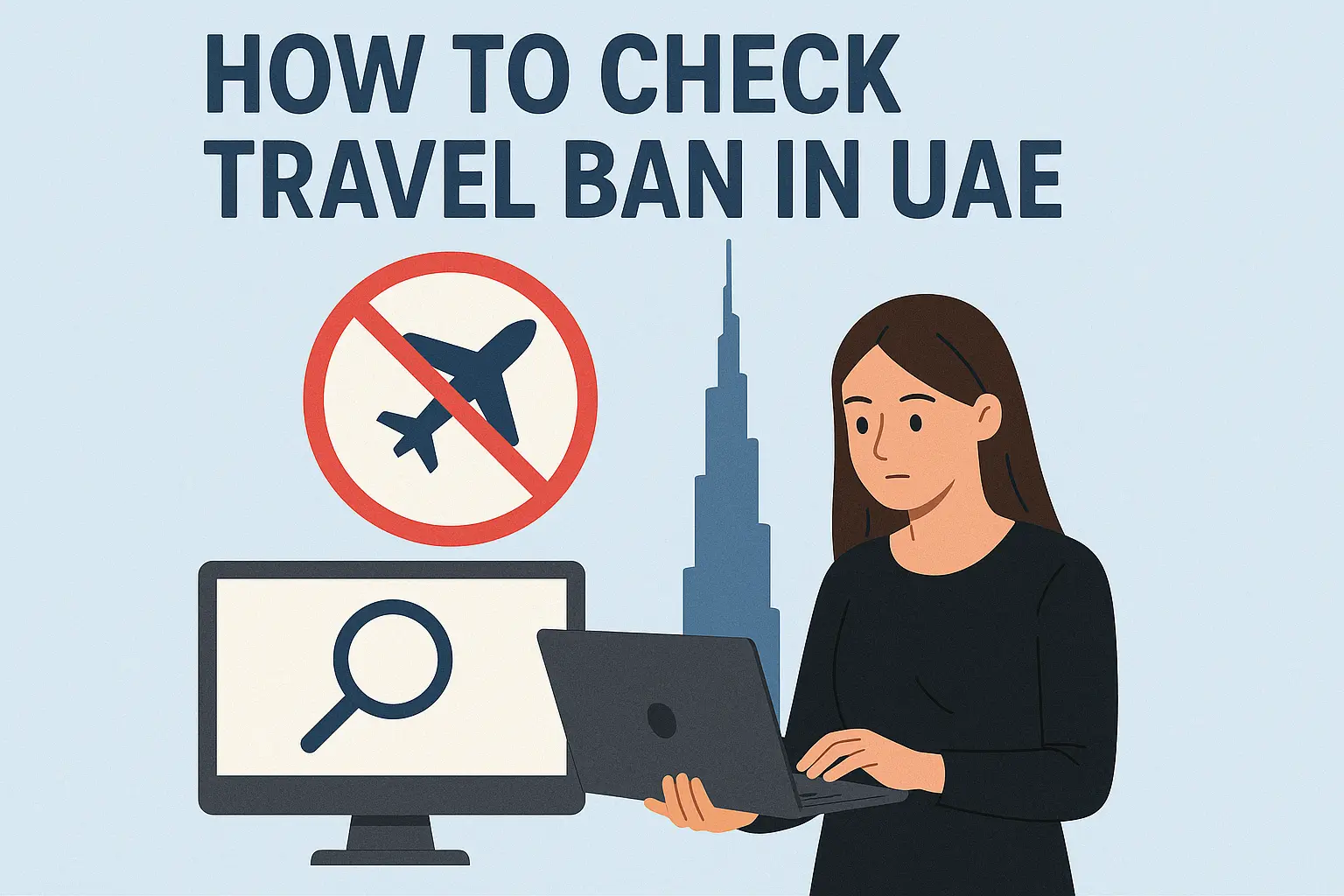For those who have spent most of their life in Dubai, the UAE or elsewhere in the Middle East, the idea of travelling to a country with a cold climate can sound appealing, and the prospect of skiing, snowboarding, or just taking in the breathtaking scenery of a mountain vista, even more exciting.
A change of temperature isusn’t the only big difference with such a holiday, and when planning travel insurance, there are many things to consider. This blog will explore some of the top tips when arranging travel cover for a winter holiday.
Unexpected Weather Conditions
Being caught in a sudden snowstorm might sound romantic and exciting but the reality can be quite different. Changes in weather that lead to severe conditions can result in flights being delayed or cancelled, so don’t get caught out if you get caught up in a storm! Travel policies provide coverage for such circumstances under their Cancellation and Curtailment sections, so check any policy you’re considering to ensure you’ve got adequate cover.
Snow And Ice Aren’t Always Nice!
Snow and ice can look incredibly beautiful especially if being experienced for the first time, but they can also be incredibly hazardous if you’ve not had to deal with them before. Slippery surfaces present a real risk for slip and trip claims and you could injure yourself just stepping foot outside of your hotel, let alone on the ski slopes!
It’s important to have good medical cover under your Travel policy to ensure that you are suitably covered for any unexpected accidents. Aside from any injury sustained from regular activity like walking, it’s important to note that in general, travel insurance policies don’t include winter sports as standard as it’s considered a hazardous pastime: meaning you’ll need to purchase an extension in cover for an additional premium. Again, check your insurance policy to ensure the cover provided will suit your holiday plans and any unforeseen incidents.
A Special Trip Calls For Special Covers
Winter sports insurance in Dubai is usually sold as add-on/extension to a standard travel insurance policy and offers more comprehensive cover based around the unique risks of such a vacation. As well as the usual coverages for lost, damaged or stolen luggage, emergency medical expenses, cancellations and delays (which we’ve already explored here), it can also provide protection against:
- Loss of ski pass (these are expensive and essential items in most ski resorts)
- Loss, theft or damage to equipment such as ski’s, snowboards, winter clothing, special camera equipment etc.
- Delays caused by extreme climate conditions, such as an avalanche
- Closure of ski-runs (known as Pistes) for more than 24 hours
- Hire of alternative equipment if your equipment or luggage is delayed or misplaced on the outward journey to your holiday destination
- Your personal liability if you injure someone else or damage their items
Always read a policy carefully for details of the activities covered and the exact coverage provided, as terms, conditions and limits may differ greatly between the various insurance providers.
Make Sure Your Plan Covers Your Plans!
It’s important to consider what activities you’ll be participating in before you travel to ensure you have adequate cover. Some policies can be pretty specific in terms of the sports and activities they cover; however, most winter sports policies include:
- Skiing (on recognised runs, referred to as “on-piste”)
- Snowboarding (again, on-piste only)
- Sledding or Tobogganing
- Ice-skating
- Skiddoos or Snowmobiling
- Husky Dogsledding & Reindeer Sleigh Rides.
In the unlikely event that your chosen sport or activity isn’t listed in the policy, it’s worth talking to Insurers anyway as they might consider covering for an additional premium. You should note, however, that most insurers will not cover any form of extreme sports, such as mountain climbing, glacier climbing, or any off-piste activity. These pose significant health and safety risks and should only be tackled by experts.
And Finally, Our Top Tips!
Winter sports can be wonderful but they can be full of hazards too and for first-timers, it’s essential to be prepared and aware. Here’s five top tips to follow to ensure your snowy stay is a safe one:
- Whatever the weather be prepared. Pack protection for your body! The sun on the slopes can actually be stronger than in sunnier countries and the glare can damage your eyes so wear goggles. Also protect your skin from the elements: sunblock against UV rays and barrier cream against cold, harsh winds are a must. Snow and ice are hard surfaces that can easily damage skin and bones, so protect yourself with properly-padded skiwear and always wear a helmet on the slopes: some policies insist on this as a term and condition of cover, so you should check.
- Talking of weather, always keep a close eye on the predicted weather from morning to afternoon on a daily basis. Weather in such locations can be very unpredictable, so ski resorts usually have information boards with the latest forecasts, and most major hotels will also brief their concierge staff on the climate and conditions so you can check with them before heading out.
- Take things steady and never exceed your experience. It’s “snow-joke” to get a broken limb or much worse by attempting that difficult ski run or snowboarding slope that you’re just not used to. Know your limits and listen to the instructors and resort staff: they know what is best for people of all abilities.
- If you’re planning to explore an area alone or unsupervised, always tell someone what you’re doing and where you’re going. Unfamiliar places and terrain can be treacherous and in the event the weather changes unexpectedly, someone will know where to locate you.
- Be alert at all times. Consider your surroundings and respect them.
Whether the weather is super-snowy or just fairly-frosty, we’re sure you’ll be left with a warm feeling about your wonderful winter vacation!







